Steel dosa tawas are considered non-reactive due to their composition, which prevents them from reacting with acidic or alkaline ingredients used in dosa batter or other cooking. It's important to note that the non-reactive property of steel tawas applies to traditional stainless steel or food-grade steel used in cookware. Some lower-quality or non-food-grade steels may not be entirely non-reactive and could potentially affect the flavor and safety of the food.
Overall, using a steel dosa tawa ensures that your dosas are cooked to perfection, with their natural flavors intact and without any risk of harmful reactions between the cookware and the dosa batter ingredients.
Table of Contents
Benefits of non-reactive nature of steel dosa tawas:
- Preserves Flavor: Acidic components like tomatoes, tamarind, or yoghurt are frequently used in dosa batters; however, steel dosa tawas do not react with these ingredients in the same way. Because of this, the natural flavours of the ingredients are able to be maintained, and you are able to enjoy the genuine flavour that dosas are known for.
- Maintains Food Safety: The non-reactive nature of steel tawas ensures that there is no transfer of metallic or off-flavors to the food being cooked. This helps maintain the safety and quality of the prepared dosas.
- Prevents Discoloration: When using steel dosa tawas, there is no risk of discoloration of the dosas caused by a reaction between the cookware and the ingredients.
- No Leaching of Harmful Substances: Steel is a safe and inert material for cooking, so there is no risk of harmful substances leaching into the food during the cooking process.
- Easy to Clean: The non-reactive nature of steel tawas makes them easy to clean, as food particles are less likely to stick to the surface.
Steel Dosa Tawa Gauge:
When choosing a stainless steel dosa tawa, the gauge or thickness of the steel is an important factor to consider. The gauge of stainless steel refers to its thickness, and it is typically denoted by a number. The lower the gauge number, the thicker the stainless steel.
A gauge that falls somewhere between 12 and 14 on a stainless steel dosa tawa is generally considered to be satisfactory. This is why::
- Heat Retention: Stainless steel with a lower gauge tends to have better heat retention properties. This means that the tawa will hold heat more effectively, leading to even cooking and browning of dosas.
- Durability: A thicker gauge stainless steel dosa tawa is more durable and less prone to warping or denting over time, ensuring a longer lifespan for the cookware.
- Less Prone to Hotspots: Thicker stainless steel is less likely to develop hotspots, ensuring that dosas cook uniformly without areas of overcooking or undercooking.
- Better Non-Stick Properties: Stainless steel dosa tawas with a lower gauge can develop natural non-stick properties over time with proper seasoning and use, making it easier to cook dosas with less oil.
- Sturdier Handles: A thicker gauge stainless steel tawa often comes with sturdier and more heat-resistant handles, making it safer and more convenient to use.
While a gauge between 12 to 14 is a good starting point, keep in mind that personal preferences and cooking habits may also play a role in the selection. Additionally, consider the brand's reputation and customer reviews to ensure the quality and performance of the stainless steel dosa tawa you choose.
Steel Dosa Tawa With Aluminium Core:
Steel dosa tawas with an aluminum core can have better heat conductivity compared to tawas without an aluminum core. These types of tawas are often referred to as "tri-ply" or "multi-ply" tawas because they have multiple layers of different metals.
The aluminum core in the tawa helps to improve heat distribution and conductivity. Because aluminium is such a good heat conductor, the tawa can take advantage of both the long-lasting and non-reactive qualities of stainless steel as well as the superior heat conductivity of aluminium thanks to the sandwiching of aluminium between layers of stainless steel.
Meyer offers a range of Steel dosa tawa with aluminium core in the form of Meyer Select and Meyer Trivantage.
Benefits Of Steel Dosa Tawa With Aluminium Core:
The advantages of steel dosa tawas with an aluminum core include:
- Even Heating: The aluminum core ensures even distribution of heat across the cooking surface, preventing hotspots and allowing for uniform cooking of dosas.
- Quick Heat-Up: The aluminum core's high heat conductivity enables the tawa to heat up faster, reducing preheating time and making it more energy-efficient.
- Efficient Cooking: With improved heat conductivity, dosas cook more efficiently, and you can achieve consistent results with each batch.
- Lighter Weight: Steel dosa tawas with an aluminum core are generally lighter in weight compared to pure cast iron tawas, making them easier to handle.
- Durability: The steel dosa tawa is made to be solid and long-lasting thanks to the use of a combination of aluminium and stainless steel, which also extends the life of the cookware.
However, it's essential to ensure that the steel dosa tawa with an aluminum core is of high quality and has proper bonding between the layers. Cheaper or lower-quality tri-ply tawas may not offer the same level of heat conductivity and performance as well-constructed ones.
When choosing a steel dosa tawa with an aluminum core, consider reputable brands such as Meyer Select and Meyer Trivantage.
Steel Dosa Tawa Use and Care:
Steel dosa tawas are often simple to clean and maintain. Dosa tawas made of steel have very straightforward maintenance and cleaning requirements as compared to other kinds of cookware. The following are some pointers for keeping a steel dosa tawa in good condition:
- Preheating: Preheat the tawa on low to medium heat for a few minutes before cooking dosas. This ensures that the tawa is evenly heated and helps prevent dosas from sticking.
- Moderate Heat: Avoid cooking dosas on very high heat, as excessive heat can damage the seasoning or non-stick properties of the tawa.
- Use the Right Utensils: Use soft utensils like wooden or silicone spatulas to avoid scratching the tawa's surface and maintain its non-stick properties.
- Cleaning: Allow the tawa to cool down slightly after cooking before cleaning. Use warm water and a mild dishwashing soap to clean the tawa. Avoid using harsh abrasives or metal scouring pads that can scratch the surface.
- Stubborn Stains: For stubborn stains, you can soak the tawa in warm soapy water for a while before cleaning. Gently scrub with a soft sponge or brush to remove any residue.
- Avoid Harsh Cleaners: It is important to refrain from putting harsh chemicals or cleansers on the steel dosa tawa, as doing so might cause the surface to become ruined and compromise its ability to resist sticking.
- Dry Thoroughly: After washing, dry the tawa thoroughly to prevent any water spots or rusting.
- Store Properly: Put the tawa away in a dry location when it's not being used. When stacking the tawa with other cookware, make sure to protect it from scratches by placing a soft cloth or kitchen towel in between the tawa and the other items.
By following these simple maintenance tips, you can keep your steel dosa tawa in good condition, ensuring its longevity and optimal cooking performance. Always refer to the manufacturer's care instructions for specific guidance on maintaining your stainless steel dosa tawa.

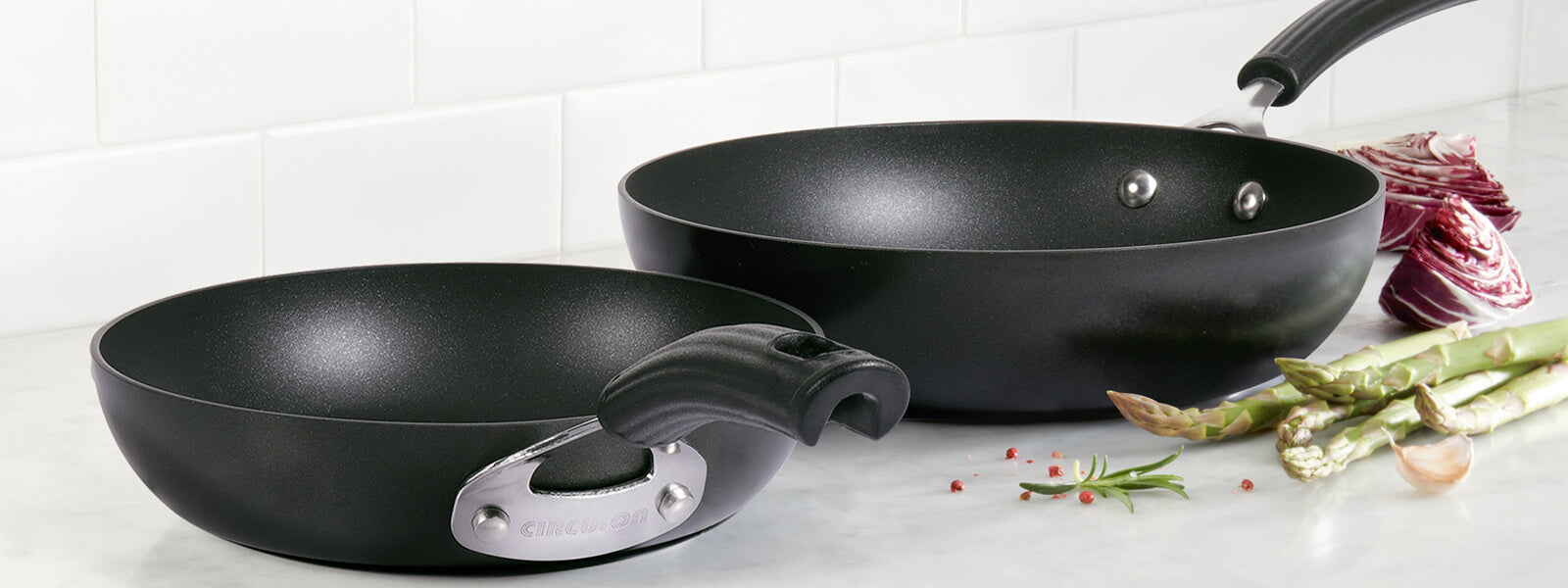

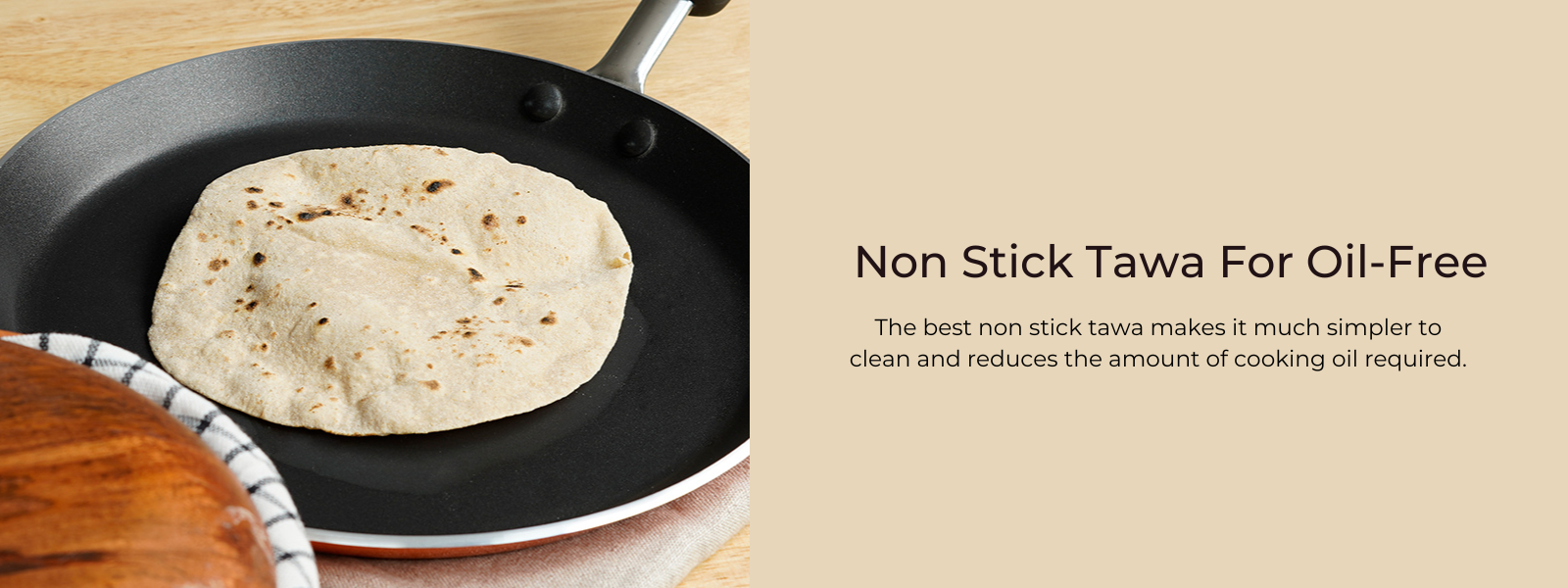
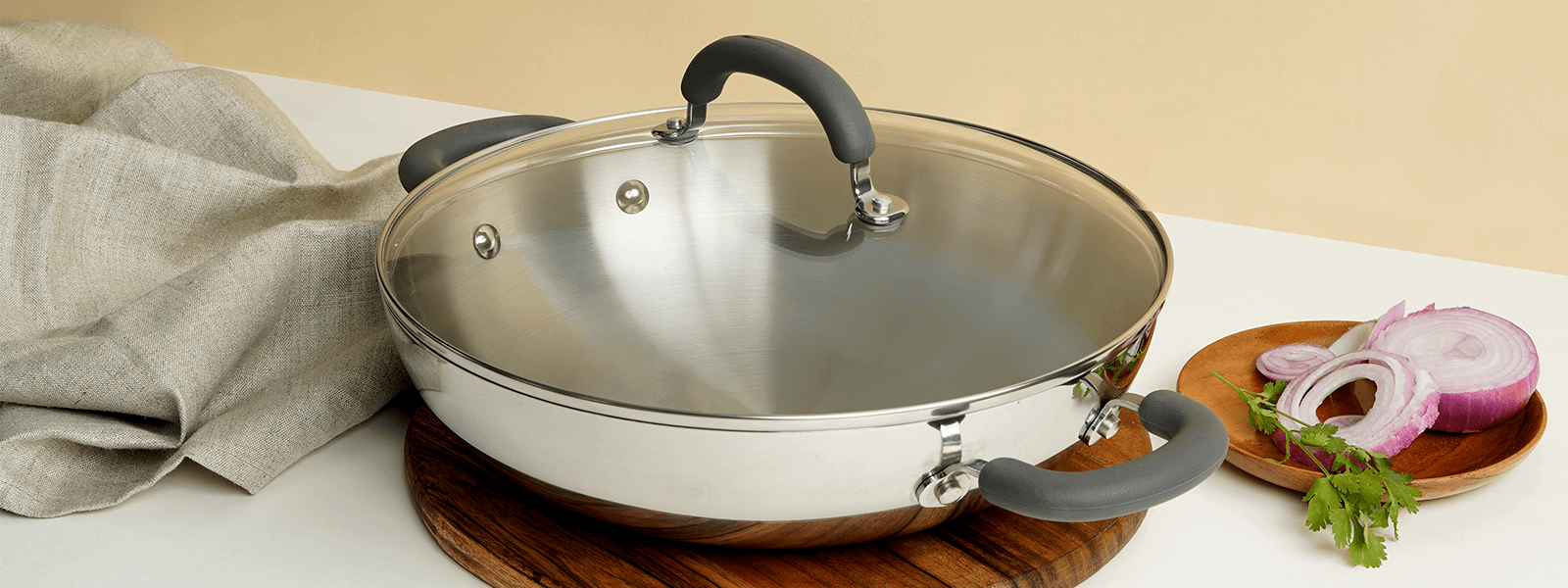
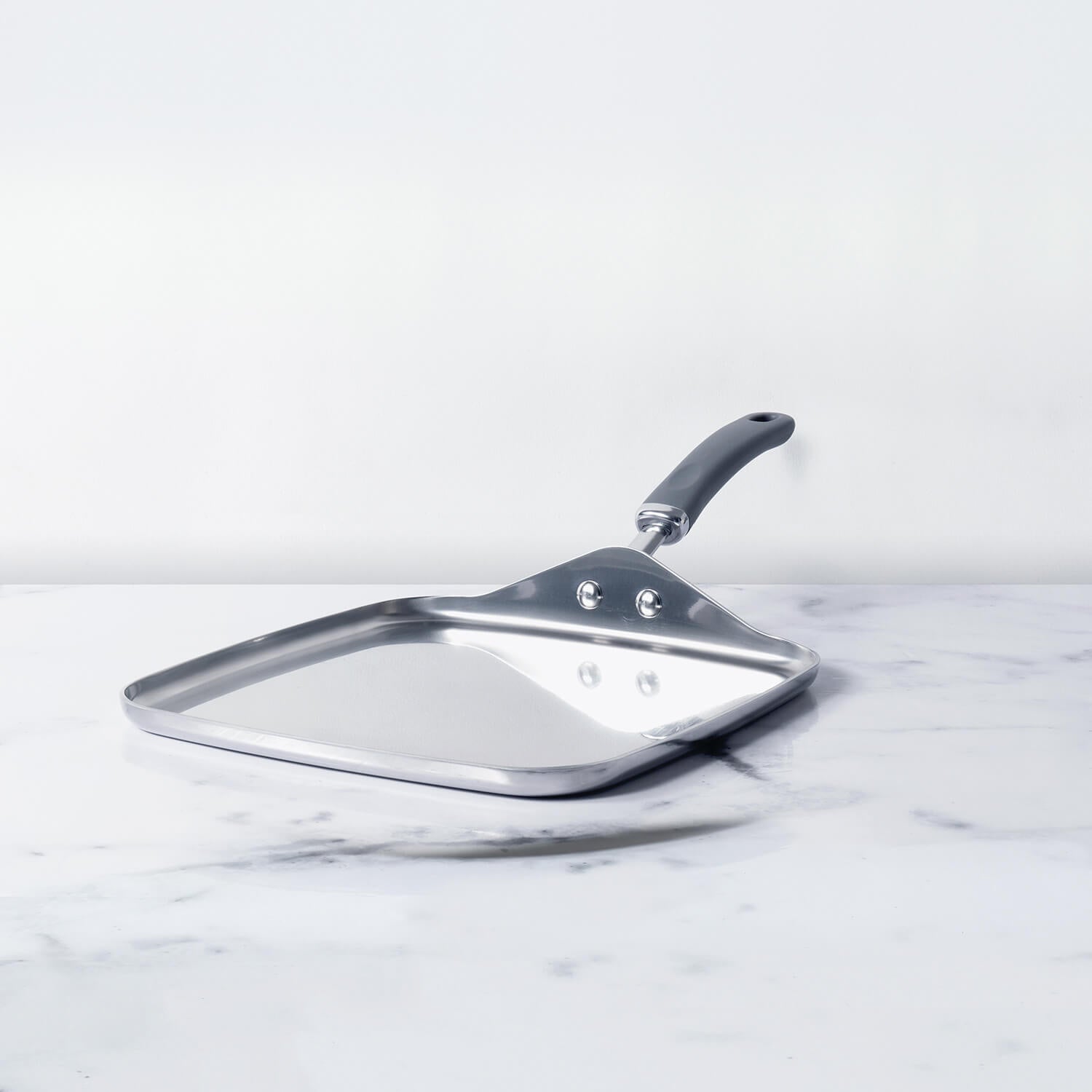
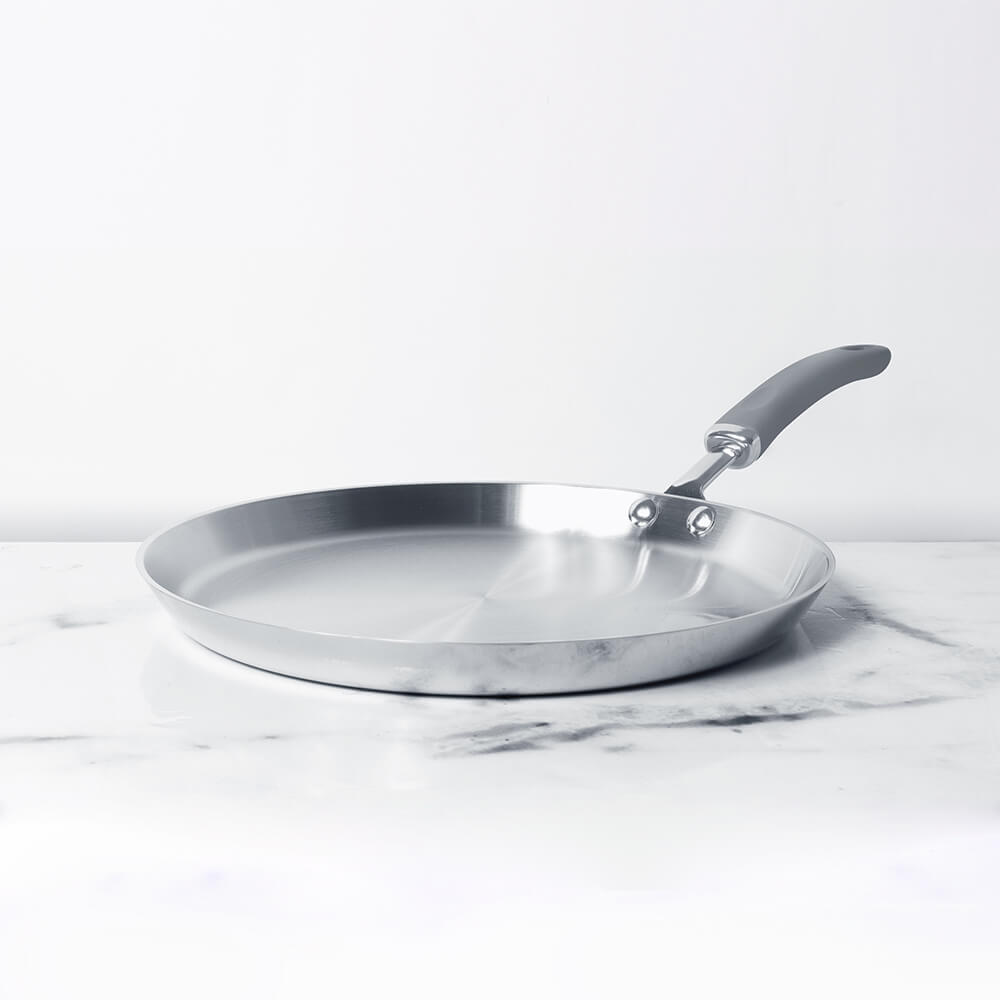




Leave a comment